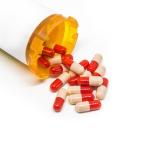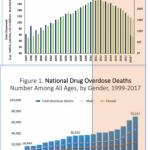Join Cameron English and Dr. Chuck Dinerstein on Episode 131 of the Science Dispatch podcast as they discuss:
opioid
Join hosts Cameron English, Dr.
Join host Cameron English as he sits down with Dr. Josh Bloom to break down these stories on Episode 42 of the Science Dispatch podcast:
Join our directors of bio-sciences, chemistry, and medicine Cameron English, Dr. Josh Bloom, and Dr. Chuck Dinerstein as they break down these stories on episode 23 of the Science Dispatch podcast.
Join ACSH directors of bio-sciences and chemistry Cameron English and Dr. Josh Bloom as they break down these stories on episode 17 of the Science Dispatch podcast:
Even those of us who are fully aware of the misery that our appalling system of drug regulation has heaped upon pain sufferers will find Maia Szalavitz's
Reprinted with permission. Dr. Singer's original article can be found here.
###
In 2016 I testified at an FDA hearing about the "opioid crisis," which was starting to make its way into the news in a big way.










